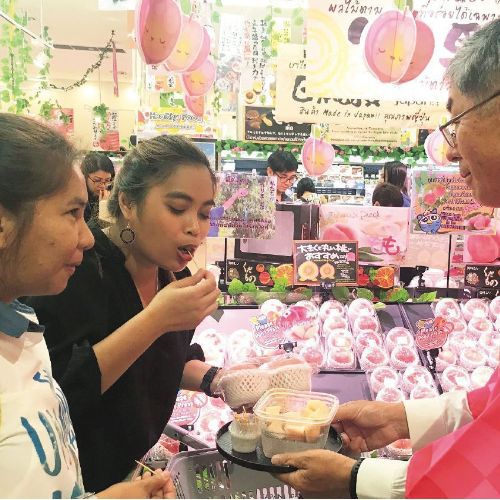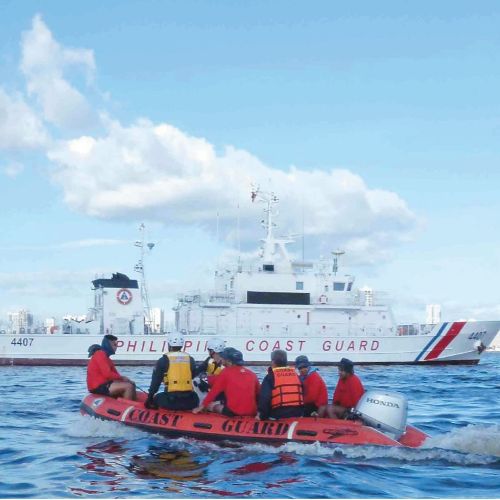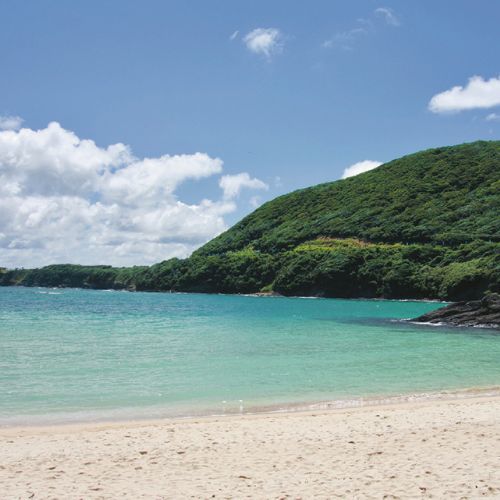Faced with pressing global problems, young people leading the future of the planet have begun to take action. Their flexible ideas offer hope for a sustainable world.
The Sustainable Development Goals (SDGs) set forth by the United Nations envision a future society that leaves no one behind. However, there are no rules or policies about how this should be realized. As the goals may be achieved by a variety of methods, young people who are concerned about the future have begun to take action.
At the G20 ministers’ meetings that have been held around Japan, Japanese high school students have synthesized and proposed new ideas to enable sustainable development. Students from Nagano, known for its rich natural surroundings, introduced their thoughts about coexisting with wildlife, and shared ideas about innovative ways of picking up trash as an enjoyable solution to the problem of plastic waste. In Fukuoka, in order to build a world where everyone will be happy, students made an appeal for the necessity to build an energy of circular economy by establishing a neutral international financial institution. Although the power of an individual human is limited, these young people are demonstrating that collective action is an effective means of changing the world.
Student Proposals | Fukuoka
A Neutral Financial Institution Actualizing the Circular Economy
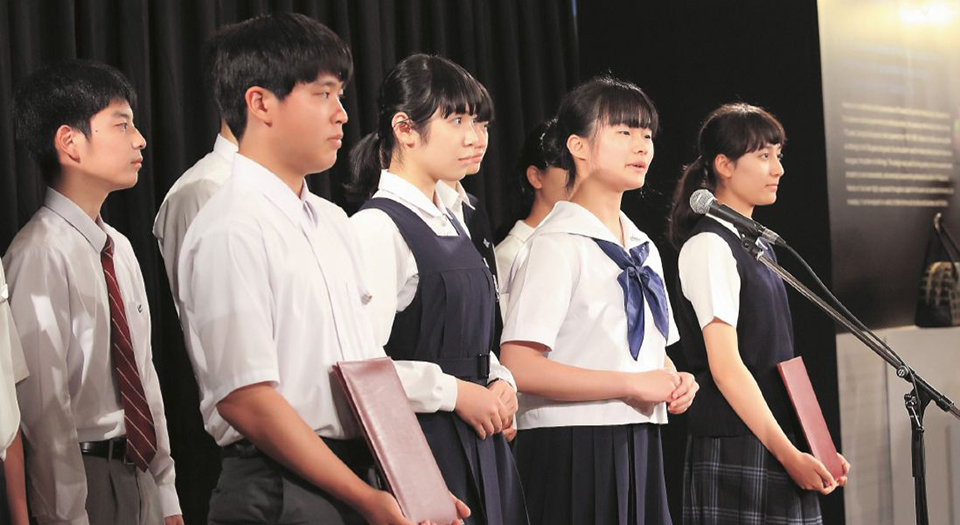
Nine students brought their ideas together, and presented a plan for developing the global economy with multilateral cooperation.
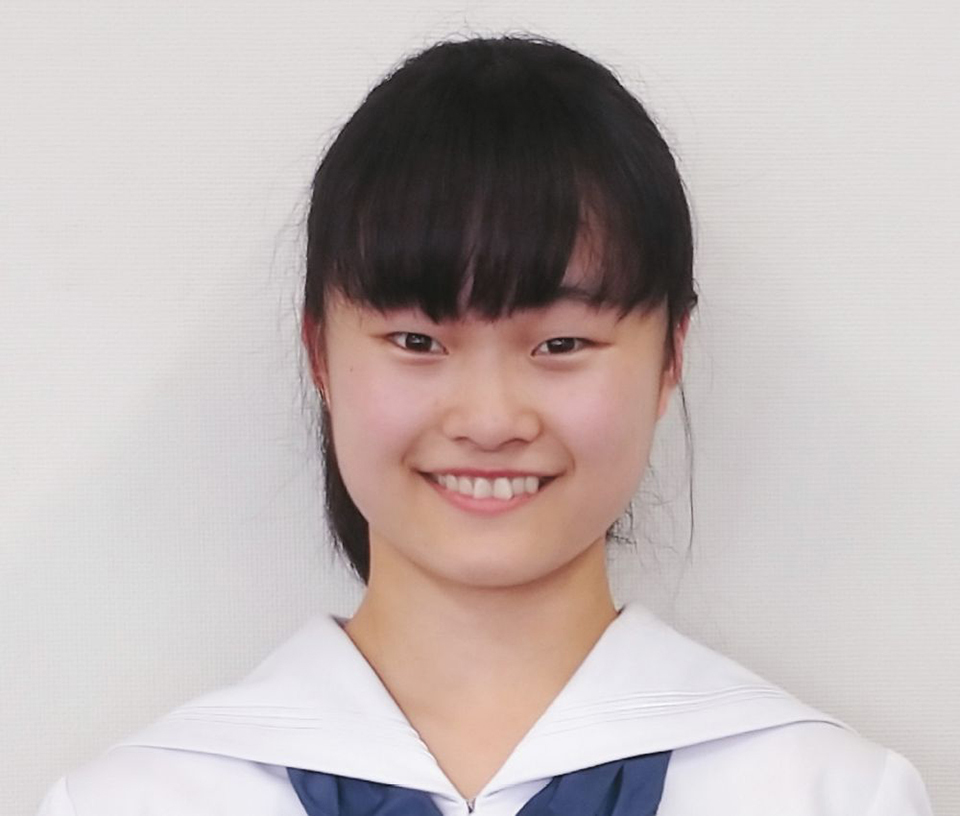
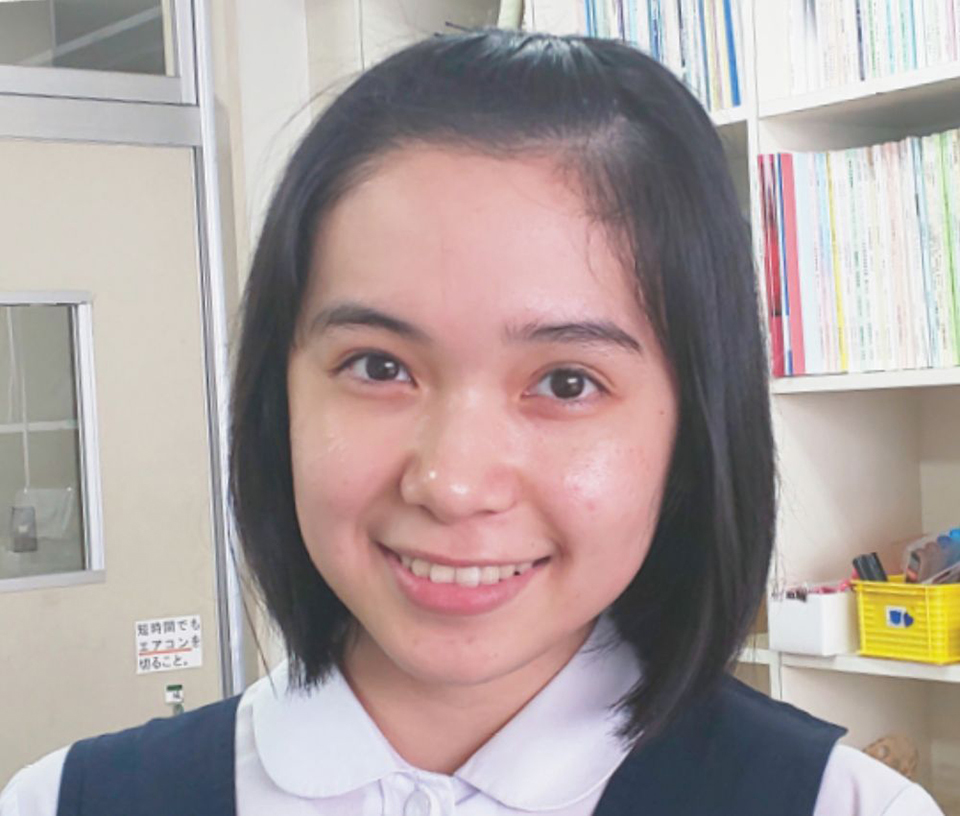
Morinaga(left) and Chayama both gave their speeches in English.
At the G20 Finance Ministers and Central Bank Governors Meeting, held in Fukuoka, student representatives selected from nine Fukuoka schools gave a presentation as a group. “In spite of different opinions and some confusion, we proceeded toward a unified goal to ‘leave no one behind,’” explains CHAYAMA Mirei. The group gave a presentation on Hydrotec, an infrastructure investment plan that involves the energy circular economy. The proposal included setting up a neutral international financial institution, generating hydrogen energy from the abundant sunlight of northern Africa, then developing an infrastructure for delivering it to the rest of the world, which would contribute to reducing CO2, and create new jobs. “To have powerful global leaders devote their full attention to our ideas gave me confidence in what I can accomplish,” said MORINAGA Riona, a second-year student. She added, “In the future, I hope to participate in work that involves many different countries.” Chayama’s goal is to become a diplomat: “I have found issues that I want to tackle.”
Student Proposals | Nagano
Creating Cooperation for Coexistence with Wildlife

From left: MURAYAMA Daichi, MATSUDA Ryo, and YANAGISAWA Shota explaining the potential for living peaceably with wild animals through the cooperation of specialists and local residents.
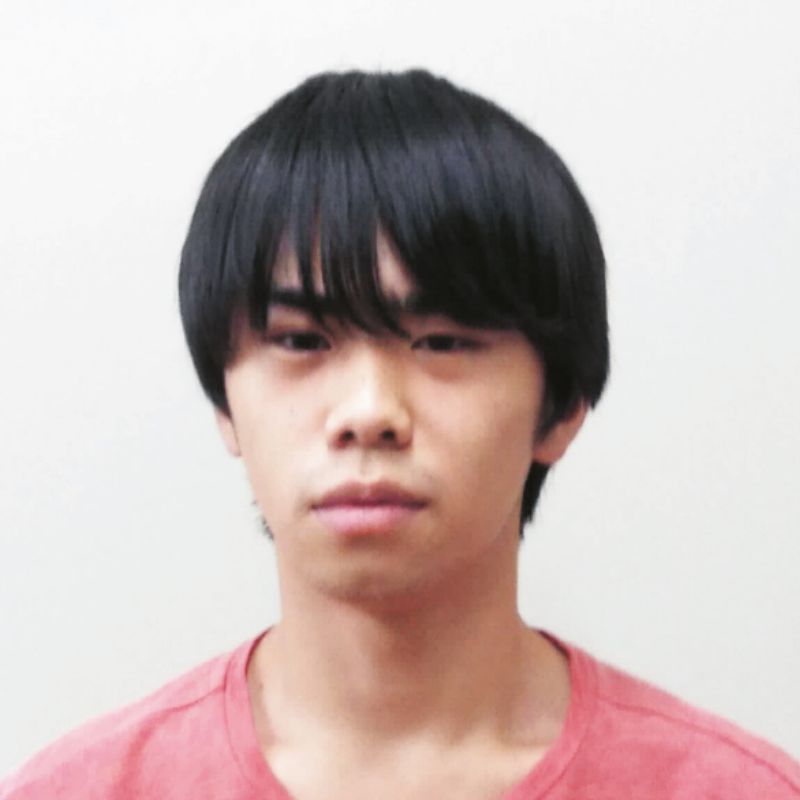
Murayama says that he has gained the confidence to express his ideas to the world.
At the G20 Ministerial Meeting on Energy Transitions and Global Environment for Sustainable Growth, held in the town of Karuizawa, Nagano Prefecture, students from two schools gave presentations. MURAYAMA Daichi represented Nagano Prefectural Ueda Senior High School. Using the activities of a non-profit organization called Picchio as an example, Murayama explained how the cooperation of experts and residents in the vicinity could solve regional problems. In Karuizawa, a resort town where increased human activity is matched by rising waste disposal problems, Japanese black bears foraging through the trash for something to eat are now encountered. Having received job training at Picchio, for Murayama, being able to live peacefully alongside bears is an important issue.
Picchio’s activities include the use of trained “bear dogs” that force bears into the habit of avoiding areas of human activity, making trash collection containers that are difficult for bears to open, and creating social awareness of solutions like better waste segregation. As a result, trash-scattering by bears has plummeted from a high of 255 incidents in 2006 to two incidents in 2018. Murayama stated that “This scheme is likely to be successful in other places too.” Murayama concluded by explaining of his own heightened awareness and greater willingness to think seriously about the problems that need to be solved. “I have developed a strong desire to study the natural environment in the future.”
Student Proposals | Nagano
Organizing a Rock Festival, to Reduce Trash in Rivers
Four students from Nagano Prefectural Nagano Senior High School addressed the G20 Ministerial Meeting on Energy Transitions and Global Environment for Sustainable Growth on ways to solve the problems of marine plastic litter. Ideas were pooled by four students. One of them said that “By investigating the local rivers, we got a realistic sense of how much litter was flowing from the rivers into the sea.”
Their idea was to hold a large-scale rock festival, called “Rock Pla Nets,” within Nagano Prefecture, with the “Pla” referring to plastic and “Nets” referring to a net for collecting litter, and to offer tickets to the festival only to people who had collected litter. The students felt that, similar to what happened during the 2018 Soccer World Cup, where the litter collection activity of Japanese supporters was picked up by the rest of the world, they could send a message to start a larger movement. Because Nagano hosted the 1998 Winter Olympics, the necessary transportation infrastructure and other facilities are already available, with capacity for a large-scale rock festival. The students said, “We are confident that young people could be mobilized for environmental protection.”
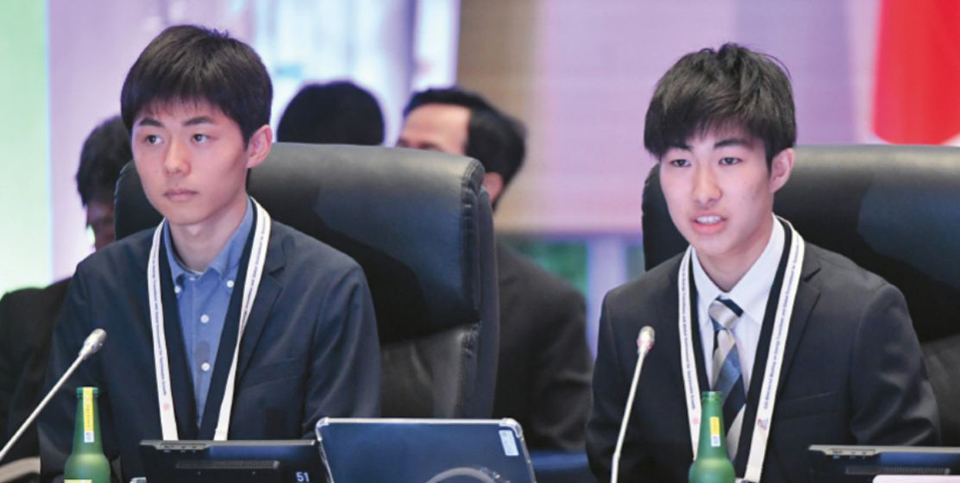
TANABE Takumi (left) and KOBAYASHI Keita presenting their ideas at the meeting.
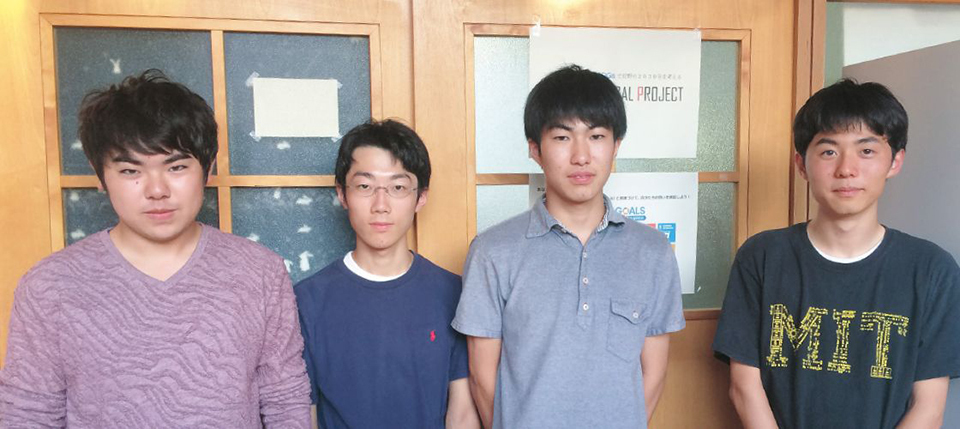
From left: KITAJIMA Ryogo and ISHII Taichi joined Kobayashi and Tanabe to search for a Nagano-esque solution to the littering problem.

























